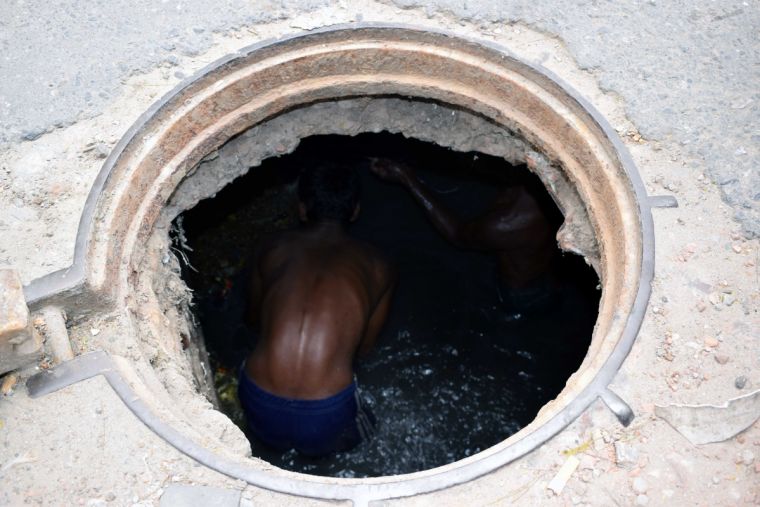Christian Pakistani sewage worker dies after doctors refuse to touch him on Ramadan fast
A Chritstian Pakistani sewage worker has died after three Muslim doctors refused to touch him.
Irfan Masih died on June 1, in Umar Kot Civil Hospital, Sindh, Pakistan. According to World Watch Monitor, the doctors said that their fast would be 'makruh' meaning invalid because he was 'unclean' from the blood on his body and belonged to a 'chuhra'.
The word 'chura' means 'low caste' and is espeically derogatory and reserved for sanitory workers but can often be used in the Pakistan for 'Christian'.
The Umar Kot Civil Hospital in Sindh has around 75 Christian families in which the majority work as sanitory workers, a job that many muslims in the area refuse to do. In 1999, writer, Casey Ethan said : 'Most Pakistani Christians today still do the same work as their untouchable ancestors: sweeping the streets and doing other menial jobs formerly deemed ritually or literally unclean by higher-caste.'
After the death of Ifran Masih, Christians from Umar Kot Civil Hospital blocked the road crossing and demanded for a criminal case to be opened against the three doctors who refused to treat him.
Usman Javed Bajwa, the Senior Superintendent of Police, told World Watch Monitor that a case of murder by negligence had eventually been registered, and the police would submit its reports in the court.

According to Paravaiz, Ifran Masih's brother, two Christian sanitary workers, including his brother were not provided with protective gear after being ordered to unblock sewage lines by their seniors. It is believed that the sewage pipes in Pakistan date bate to British colonial times and with blackwater sewage, workers are expected to dive into the unclean water to unblock the pipes.
Speaking to WWM he said : 'They objected that the lines, clogged for a long time, would be filled with poisonous gases, but the three inspectors told them that they either open the clogged lines or quit their jobs.
'When they reached Chorr Road, Yaqoob went down into the manhole. Irfan was a supervisor, so had no responsibility to go down the manhole, but when Yaqoob opened the blocked pipe, the poisonous gas leaked out and they all fell unconscious.'
Paravaiz then explained the unexpected events that followed at the hospital.
'We called the Civil Hospital to say we were bringing in three unconscious men, expecting them to receive and quickly treat them, but it turned out to be the opposite: the first doctor who came to examine them was Muhammad Yousuf. He told a ward assistant to get the bodies of the three washed and then he would examine them, as he was fasting, and any physical contact with them would mean Allah would disapprove of his fast.
'This same attitude was adopted by two doctors Allah Daad and Jaam Kambar who did not provide any medical treatment.'
After being refused treatment by three doctors, another came along and was ready to treat the three unconscious men.
Speaking to WMM, Paravaiz said : 'Then a fourth doctor Hanif Arisar came, who gave them his full attention. He asked for oxygen to be given to Irfan, but the hospital had no arrangements for it.
'Shaukat and Yaqoob were shifted to Hyderabad in a critical condition, while my brother was pronounced dead after doctor Hanif examined him.'
Kanwal Lal Malhi , a worker with a local NGO, told World Watch Monitor that several human right organizations and local activists helped the Christians to organize the protest after Irfan's death. 'I remained with the family until the government decided to take up the case. Otherwise, initially, the police were unwilling to listen to them.'
A Pakistani Christian NGO has said that a doctor's Hippocratic oath obliges him to treat a patient whose life is at risk in any circumstances, beyond religion and class. According to a report by Minority Rights Commission published in 2012, at least 70 Christians have died since 1988 while cleaning sewerage pipelines.
The incident, which was reported across all newspapers and TV channels, has shocked Pakistanis' around the country and the Sindh government is considering compensation for the bereaved family.











